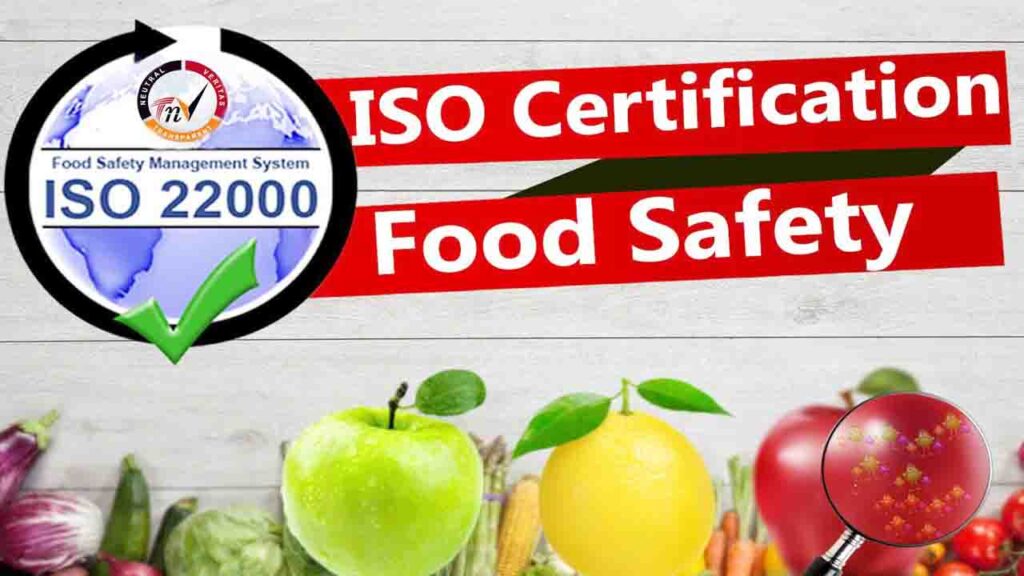FSMS ISO 22000 is an internationally recognized standard that sets out the requirements for a Food Safety Management System. It integrates food safety practices across all stages of the supply chain, ensuring the production of safe and high-quality food products. Adopting FSMS ISO 22000 helps organizations identify potential risks and implement effective controls, ensuring compliance with global food safety standards. This system benefits not only the business but also consumers, fostering trust and confidence in the brand.
Organizations that adopt FSMS ISO 22000 gain a competitive edge by demonstrating their commitment to food safety. This standard is designed to align with other management systems, such as ISO 9001, creating a comprehensive framework for operational excellence. By streamlining processes and enhancing risk management, businesses can improve efficiency and reduce the likelihood of food safety incidents, ultimately contributing to customer satisfaction and loyalty.
The Importance of ISO 9001 Certification in Quality Management
ISO 9001 Certification is the global benchmark for quality management, applicable to organizations of any size or industry. This certification provides a structured approach to improving processes, enhancing customer satisfaction, and ensuring consistent product or service quality. When paired with FSMS ISO 22000, it creates a robust foundation for managing both quality and food safety effectively. Organizations with ISO 9001 Certification showcase their dedication to meeting customer expectations and regulatory requirements, which strengthens their reputation.
Achieving ISO 9001 Certification ensures that businesses can maintain quality across all operational aspects. This certification emphasizes a process-based approach, enabling organizations to identify inefficiencies and make continuous improvements. Combining the strengths of ISO 9001 and FSMS enhances a company’s ability to deliver safe and quality products while achieving operational excellence, setting them apart in a competitive market.
Key Differences Between FSMS ISO 22000 and ISO 9001 Certification
While both FSMS ISO 22000 and ISO 9001 Certification focus on enhancing operational effectiveness, their primary objectives differ. FSMS centers on food safety management, addressing hazards, and ensuring safe production processes throughout the supply chain. This makes FSMS ISO 22000 indispensable for food manufacturers, processors, and distributors aiming to prevent contamination and protect consumers.
On the other hand, ISO 9001 Certification emphasizes quality management across all industries, focusing on customer satisfaction and operational consistency. When implemented together, these standards complement each other by ensuring both food safety and quality, creating a holistic management approach. Organizations that integrate these standards can achieve a higher level of efficiency and reliability, meeting diverse stakeholder expectations and regulatory demands.

Benefits of Implementing FSMS ISO 22000 in the Food Industry
Adopting FSMS ISO 22000 offers numerous benefits, particularly for organizations in the food industry. It establishes a proactive approach to identifying and managing food safety risks, ensuring compliance with international regulations. By implementing FSMS ISO 22000, businesses can improve communication along the supply chain, fostering collaboration and transparency among stakeholders. This approach minimizes the likelihood of food safety incidents, protecting both consumers and brand reputation.
In addition to compliance, FSMS ISO 22000 enhances operational efficiency by integrating food safety into daily processes. The standard’s systematic framework encourages continuous improvement, enabling businesses to adapt to evolving food safety challenges. With FSMS in place, companies can build trust with customers and regulators, gaining a competitive advantage in the global market.
Role of ISO 9001 Certification in Enhancing Business Performance
Achieving ISO 9001 Certification has a transformative impact on businesses by improving operational performance and customer satisfaction. This certification emphasizes a customer-centric approach, enabling organizations to identify and meet client needs effectively. With ISO 9001 Certification, businesses can establish consistent processes that reduce errors, enhance product quality, and boost overall efficiency.
The certification also drives a culture of continuous improvement, empowering employees to contribute to organizational goals. When paired with FSMS ISO 22000, ISO 9001 helps create a seamless management system that addresses both quality and safety. This integration allows companies to deliver superior products while maintaining compliance with stringent industry standards, solidifying their position as market leaders.
Integrating FSMS ISO 22000 and ISO 9001 Certification for Excellence
Combining FSMS ISO 22000 with ISO 9001 Certification creates a unified management system that addresses food safety and quality holistically. This integration allows organizations to streamline their processes, reducing redundancies and ensuring efficient use of resources. By adopting both standards, companies can maintain high safety and quality standards while fostering innovation and adaptability.
The integration of FSMS ISO 22000 and ISO 9001 enables organizations to meet complex regulatory and customer demands effectively. This approach not only enhances operational efficiency but also builds a strong reputation for reliability and excellence. With a comprehensive management system in place, businesses can confidently navigate the challenges of the food industry, delivering safe and high-quality products consistently.
Steps to Achieve FSMS ISO 22000 and ISO 9001 Certification
Attaining FSMS ISO 22000 and ISO 9001 Certification requires a strategic approach to align processes with the standards’ requirements. The first step involves conducting a gap analysis to identify areas needing improvement and creating an action plan to address them. Engaging employees through training ensures they understand their roles in maintaining compliance with both standards.
Documentation is a critical aspect of obtaining FSMS ISO 22000 and ISO 9001 certifications. This includes creating policies, procedures, and records that demonstrate adherence to the standards. Regular internal audits help assess progress and ensure continuous improvement. By following these steps, businesses can achieve certifications that enhance their credibility, operational performance, and market competitiveness.
Conclusion
The integration of FSMS ISO 22000 and ISO 9001 Certification offers businesses a comprehensive framework to manage food safety and quality effectively. These standards not only help organizations comply with regulations but also enhance operational efficiency, customer satisfaction, and market competitiveness. Implementing FSMS ISO 22000 ensures a proactive approach to food safety, while ISO 9001 drives continuous improvement in quality management.
Together, these certifications empower businesses to deliver safe and high-quality products, fostering trust among stakeholders and consumers. By adopting a strategic approach to achieve and maintain these certifications, organizations can navigate industry challenges confidently and establish themselves as leaders in their field.
